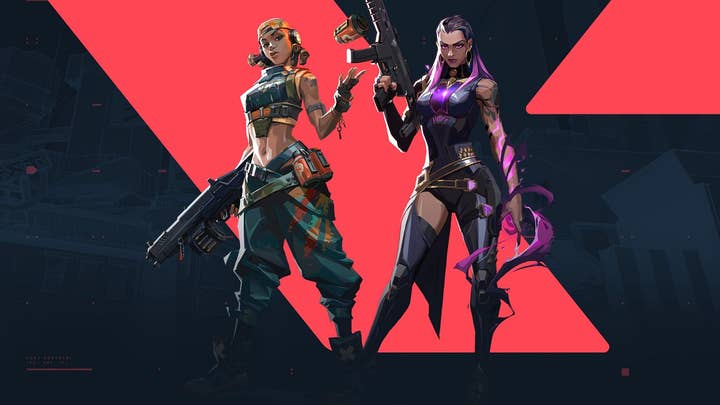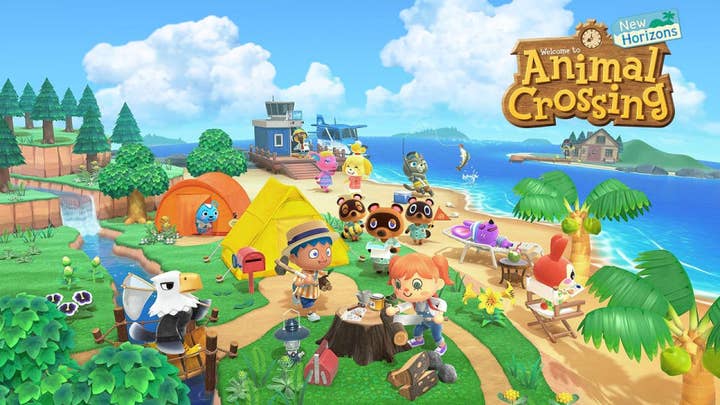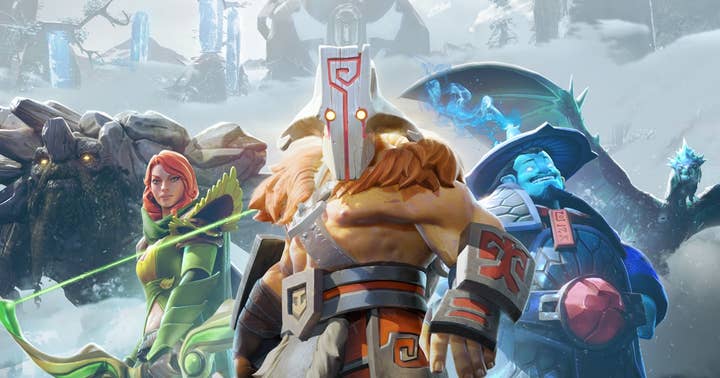Harassment costs this industry too much | Opinion
From dollars to basic human decency, the status quo of online multiplayer gaming is taking a heavy toll
Earlier this week, the Anti-Defamation League released a report showing that harassment in online multiplayer games is widespread and getting worse.
Some of the numbers in the report are alarming. 68% of online gamers reported experiencing severe harassment in the past six months, up from 65% in last year's survey. More than half were threatened with physical violence. More than half were discriminated against based on their age, gender, ethnicity, sexual orientation, etc.
41% were sexually harassed, which only becomes more distressing when considering roughly 50% of the respondents were women and how much less likely men are to be sexually harassed in gaming spaces than women.
9% of players said they contacted police about their harassment. 13% said they were doxed, with personally identifying information made public. A stunning 12% said they were swatted, defined as a stranger making a false report to emergency services about them.
But the number I most wanted to focus on is 22%, which is the amount of respondents who said that they had stopped playing certain games entirely to avoid harassment.
Harassment is a problem that is actively driving customers away. One in five online gamers has stopped playing a title specifically because of the harassment they were experiencing in it.

But as the ADL report makes clear, there's no safe haven for players concerned with harassment to move to.
DOTA 2 and Valorant were the worst games for harassment, with 80% of players for each game having been harassed in the previous six months. (Valorant's own developers have publicly complained about the toxicity in the game.) But competing titles like League of Legends (73%) and Overwatch (62%) clearly have problems of their own. Even going to more family friendly games like Roblox and Minecraft is far from a guarantee of avoiding harassment, as they respectively had 61% and 53% of players harassed recently.
In fact, I've already named three of the four games with the lowest harassment rates. The only title able to claim that a majority of its online players had a harassment-free experience was Animal Crossing, where 36% of online players reported such problems.
That Animal Crossing number is particularly interesting to me, partly because it's so much lower than the rest of the games and partly because it's still quite substantial.
Where most of the industry is trying to reduce friction in every possible facet of the online gaming experience, Nintendo is covering every part of its online strategy in sand
There are a few likely suspects for the number being lower than the rest of the field. First, Animal Crossing is a pretty calm and cozy game that has some stark differences from the titles more closely associated with harassment. It's not aggressive. It's not inherently competitive. With the arguable exception of Redd the shady art dealer, it doesn't really allow players to roleplay transgressive behavior.
Beyond that, Nintendo implemented a deliberately obtuse system for online play that requires communication to happen outside of the confines of the game before they can interact with other players.
In short, players must be friends in Nintendo's system-level social feature or give out a five-digit Dodo code for other players to visit them. Then the player hosting these friends needs to open the gates of their island to visitors. Visiting players are also prevented from using especially disruptive tools like shovels and axes on the island unless the host has designated them as "Best Friends." (An update this week has added the ability to visit random players' islands asynchronously in "dreams," where they cannot make changes or otherwise impact the island, but that feature was unavailable when the survey was conducted in early July.)
Where most of the industry is trying to reduce friction in every possible facet of the online gaming experience, Nintendo is covering every part of its online strategy in sand, ensuring that anyone who makes it online wants it bad enough to jump through hoops.
Every additional bit of friction threatens to turn away would-be players, but it also makes the investment of the ones who see it through that much larger, and reasonably increases the incentive to play by the rules or risk having that investment go to waste. It certainly makes it less appealing to create burner accounts for anyone whose primary goal is agitation.

The 17% gap between the percentage of Animal Crossing's player base that was harassed and the next lowest number (Minecraft's 53%) suggests that these sort of limitations and friction-adding features absolutely are effective in reducing harassment in online game spaces. Furthermore, the 26.04 million Animal Crossing copies sold between March and September suggests that implementing these kind of measures doesn't necessarily hamstring a game's success.
Despite restrictions that most publishers would consider too onerous to foist upon players, more than one-third of Animal Crossing online gamers still experienced harassment
That said, this clearly isn't a one-size-fits-all solution. You can't reasonably apply that same friend code-driven system to a battle royale title, and Animal Crossing's online play still sees its share of bad behavior, from people including hate symbols in their custom-made patterns to harassment over trading deals gone sour or straight-up scams. After all, despite restrictions that most publishers would consider too onerous to foist upon players, more than one-third of Animal Crossing online gamers still experienced harassment.
So what else can be done to limit harassment? The ADL had a few specific suggestions, including content moderation tools for in-game chat and improving in-game reporting systems by providing transparency to players on whether or not their reports led to action. Beyond that, the ADL suggested being more specific with terms of use that forbid hate and harassment to detail what traits of people are specifically protected (as examples, gender identity, race/ethnicity, and ability status), and to actually enforce those rules.
The ADL also called on companies to be more transparent about the amount of hate and harassment on their platforms, producing regular public reports to give people an accurate picture of what's going on in their online spaces.
That's all well and good in terms of first steps, but I suspect the industry will ultimately need to do more. Because the numbers released in the report don't just underscore how common harassment is in online gaming or how much money companies are leaving on the table by refusing to tackle the problem. They also underscore how much misery online gaming produces in the world.
11% of online gamers surveyed said they had depressive or suicidal thoughts as a result of the harassment they suffered. 11% said it made them treat other people worse than usual. 10% said it disrupted their personal relationships.
The potential damage done to players is unsettling enough when throwing around percentages; it's borderline unfathomable in absolute numbers.
Even the back-of-the-napkin math on this is staggering. PUBG Mobile alone has more than 600 million players worldwide. Let's assume the US isn't abnormally terrible for harassment, apply the ADL survey findings and say 67% of the PUBG playerbase, or about 402 million people, have been harassed while playing it. If we apply those same percentages about the effects of harassment, that's still more than 44 million people who had depressive or suicidal thoughts. That's 44 million who took their own negative experience and passed it on to ruin someone else's day. That's 40 million relationships damaged because of a game.
Halve those numbers and halve them again for the various reasons that tally is less than scientific and you still end up with eight-figure totals for each. And while PUBG has an unusually large player base, it's still just one game and it isn't even particularly toxic compared to its peers. Of the 17 games looked at, PUBG was tenth in terms of the percentage of players reporting harassment.
How many of those 22% of players who quit a game because of harassment have already been pushed out of other games? How many will just give up gaming for good?
Harassment in gaming is nothing new, and it clearly hasn't stopped individual publishers from being successful or the industry as a whole from seeing explosive growth. But eventually the untapped markets will be tapped and the non-traditional gaming demographics will be just another group of regulars. And I suspect that's when we'll see more people asking how much the industry's approach to harassment has cost in the long run.
How many of those 22% of players who quit a game because of harassment have already been pushed out of other games? How many will just give up gaming for good? How many people will never give online gaming a try because they know the reputation and want no part of that?
How many people's lives can be meaningfully worsened by their gaming experiences before people decide the status quo isn't acceptable?
To be fair, this year has seen some movement on this front. Electronic Arts has not only rolled out its Positive Play Charter to detail unacceptable behavior, it has acknowledged past failures and a "high volume of toxic behavior within some of our games." Infinity Ward similarly pledged to clean up its community. Even Valve was pushed to the point of action by a rash of racist bots in Team Fortress 2. Yes, that Valve!
That seems like progress and a more hardline approach in some cases than we've seen from previous industry initiatives like the Fair Play Alliance, but it's still largely been limited to people admitting there's a problem. We need to see how they follow through on these commitments and how they shape their online communities going forward. What I hope the ADL report hammers home is just how big a problem this is, and how crucial it is for both the industry and its players to prioritize fixing this now.

